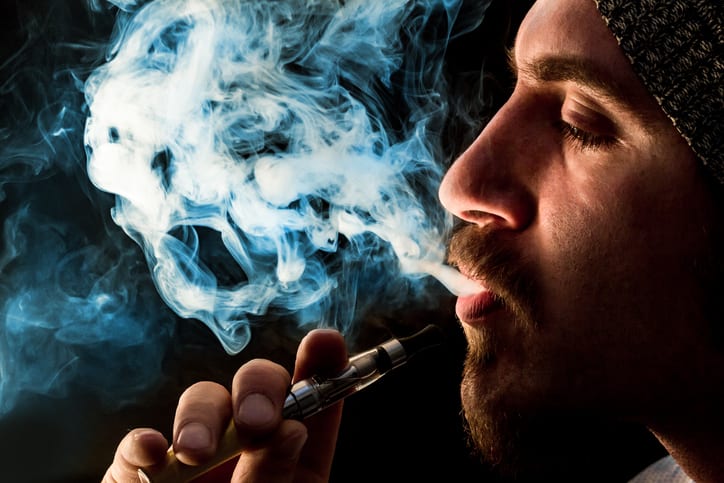While the nation focuses on protecting older, infirmed people from exposure to COVID-19, teens and young adults aren’t immune to the coronavirus, especially those who smoke or vape.
According to data recently released by the Centers for Disease Control and Prevention, more than one-third of COVID-19 cases nationwide are in those under age 45, with one in five of those requiring hospitalization.
“We believe that younger people who vape, or use e-cigarettes, run an even higher risk of contracting COVID-19, and more severely, than other people,” said Dr. J. Craig Allen, medical director of Rushford, part of the Hartford HealthCare Behavioral Health Network. “Vaping leaves the lungs more vulnerable to severe infection and we know that COVID-19 attacks the lungs.”
When vaping, people inhale aldehydes, propylene glycol, glycerol and other substances that can impair the body’s immune function and cause damage to cells of the lungs. COVID-19 and other pathogens take advantage of this compromised condition, Dr. Allen noted.
The connection to vaping is supported by early data from China, where the COVID-19 pandemic originated, indicating that smokers and people living in cities with high levels of air pollution had more severe symptoms with the virus. The study, published in the Chinese Medical Journal, cited smokers were 14 times more likely to experience poorer outcomes; experience disease progression; and die.
Dubbed a nationwide epidemic by the Food and Drug Administration, vaping is popular among teenagers with nearly 40 percent of high school seniors using e-cigarettes. The World Health Organization said cigarette smokers are more likely to develop more serious cases of COVID-19, and experts believe anyone using e-cigarettes will fare no better.
Vaping has been linked with myriad serious lung illnesses causing shortness of breath, including bronchitis, asthma and early COPD. Dr. Allen added that nicotine itself impacts attention, concentration, memory and sleep.
“Using nicotine in adolescence or young adulthood is associated with the development of other addictions later in life,” he said.
For information on vaping and e-cigarettes from the Surgeon General, click here. To quit smoking or vaping, visit https://smokefree.gov created by the National Cancer Institute. For information about Hartford HealthCare’s addiction services, click here.
Not feeling well? Call your healthcare provider for guidance and try to avoid going directly to an emergency department or urgent care center, as this could increase the chances of the disease spreading.
Click here to schedule a virtual visit with a Hartford HealthCare-GoHealth Urgent care doctor.Stay with Hartford HealthCare for everything you need to know about the coronavirus threat. Click here for information updated daily.
Questions? Call our 24-hour hotline (860.972.8100 or, toll-free, 833.621.0600).
Get text alerts by texting 31996 with COVID19 in the message field.


